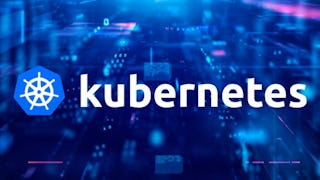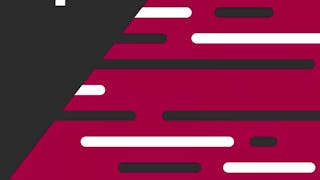Updated in May 2025.
This course now features Coursera Coach! A smarter way to learn with interactive, real-time conversations that help you test your knowledge, challenge assumptions, and deepen your understanding as you progress through the course. Begin your journey into the world of Kubernetes with a structured course designed to make you proficient in container orchestration. The course starts with an introduction to Kubernetes, explaining its fundamental components such as pods, clusters, nodes, and services. You'll gain a clear understanding of how Kubernetes functions and the role of kubectl in managing your cluster. Next, you’ll set up your environment by installing Minikube and kubectl, essential tools for running Kubernetes locally. You’ll create your first Kubernetes cluster and explore its nodes, giving you hands-on experience in managing a cluster. The course then guides you through creating and managing pods, deployments, and services, providing step-by-step instructions on scaling applications and connecting to services. In the latter part of the course, you'll dive into more advanced topics such as rolling updates, pod recovery, and using the Kubernetes dashboard. You'll also learn how to create and apply YAML specification files for deployments and services. The course culminates in deploying and managing a Node.js application, including creating Docker images, pushing them to Docker Hub, and scaling the application using Kubernetes. By the end of this course, you'll be confident in deploying and managing applications with Kubernetes in real-world scenarios. This course is designed for developers, system administrators, and IT professionals who are new to Kubernetes. Basic knowledge of Docker and containerization is required.















